According to nutrition experts, you should
provide yourself with vegetables and fruits daily to maintain good health.
A part from providing vitamin A, C and
other nutrients, fruits can help you prevent many diseases, such as
cardiovascular diseases and stroke, control blood pressure and cholesterol,
prevent some cancers and protect eyesight.
According to nutrition experts, you should
provide yourself with vegetables and fruits daily to maintain good health.
However, when eating fruits, you should be
careful because eating too much fruit or in a wrong way won’t bring you
benefits; in some cases, it can cause some “fruit diseases”.
Water melon
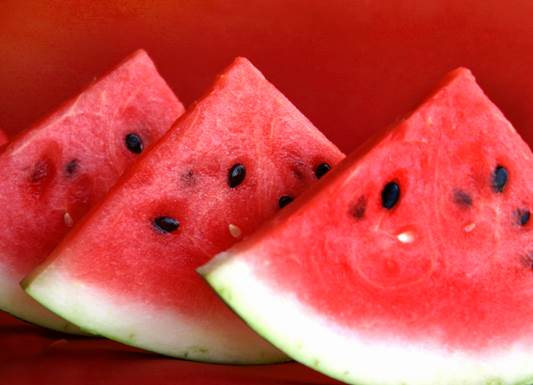
You
should eat water melon with salt to emphasize the sweetness of it.
Water melon is a best fruit to be eaten in
summer. Medically, water melon has sweet and cool flavors; it’s safe and brings
febrifuge effects that help improve heatstroke. Besides, it can remove gingivitis,
helminthes, bring diuretic effects and detoxify alcohol…
However, if you eat too much water melon,
it will cause bad effects on your milt, stomach, lead to appetite loss and
indigestion, especially to old people who have weak digestion: if they eat too
much water melon, they will suffer from appetite loss, diarrhea and other
intestine diseases.
Note: To people who often have diarrhea,
they shouldn’t eat too much water melon. Water melon should be eaten after cut;
if let the cut water melon species contact with air for too long without good
preservation, it can cause you abdominal pains. When eating water melon, you
should eat it wi⣓h salt to emphasize the sweetness of it and receive laxative
effects…
Peach
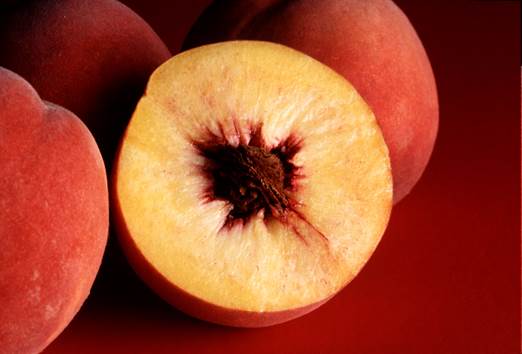
People
who often have thirsts and sore throat shouldn’t eat too much peach.
According to the East medication, peaches
have warm nature and many effects on human health. Peaches contain lots of iron
which helps prevent anemia that caused by iron deficiency. They can treat
cough, bring diuretic effects and prevent cancer… The peach is a wonderful source
of niacin, thiamin, potassium and calcium. The peach also has high level of
beta-carotene – an antioxidant that takes part in vitamin A transmission. It’s
necessary to the health of heart and eye. People have high level of vitamin A
have less chance of cataracts. The amount of antioxidant of peaches also
supports the urinary and digestive system’s maintenance. The peach is also
considered to be a purifying and detoxifying substance for the kidneys.
However, eating too much peach will
increase the heat of the body excessively. Therefore, people who often feel
thirsty or have sore throat shouldn’t eat too much peach.
Litchi
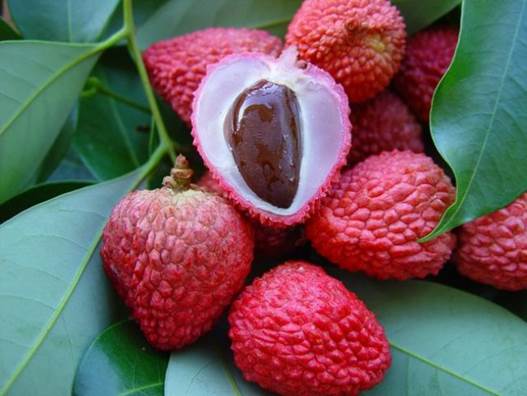
Fresh
litchis contain high level of sugar.
Fresh litchis contain high level of sugar.
If you eat too much litchi and less starch, you can easily have hypoglycemia
which then leads to symptoms like dizziness, pale skin, thirst, nausea,
sweating… That’s because litchis have lots of fructose; it can increase the
level of fructose in the blood. In this case, the liver can’t be able to
transfer fructose into glucos, so it increases the level of sugar in blood.
Mango
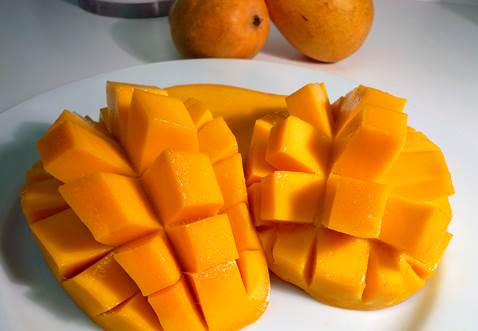
Mango
is considered to be the king of tropical fruits.
Mango is considered to be the king of
tropical fruits. It’s not only an attractive fruit, but has plenty of nutrients
that are good for your health. The mango is rich in antioxidants which can
disable the effects of free radicals that are harmful to tissues and cause
health issues, such as heart diseases, premature aging and cancer.
Nevertheless, mangos are not good for
people who have energy deficiency or spleen failure. If those people eat mango,
they get vomiting, diarrhea and other symptoms.
Pineapple
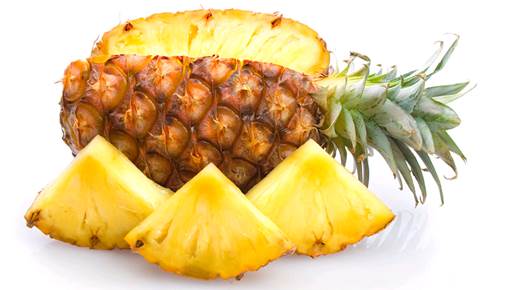
The
pineapple is a tropical fruit which has a great content of vitamin C.
Pineapple contains lots of vitamins that
are good for health and skin aging improvement that prevent the skin from
dryness and peeling. The pineapple is a tropical fruit which has a great
content of vitamin C. Besides, the pineapple has a special substance called
proteinase which can increase the absorbing activity of the stomach mucosa.
Hence, some people can get abdominal pain,
itches, nausea, headache, or even shock from eating pineapple. In those cases,
you can soak the pineapple in salted water in about 20 minutes before eating in
order to remove proteinase and reduce allergic effects.